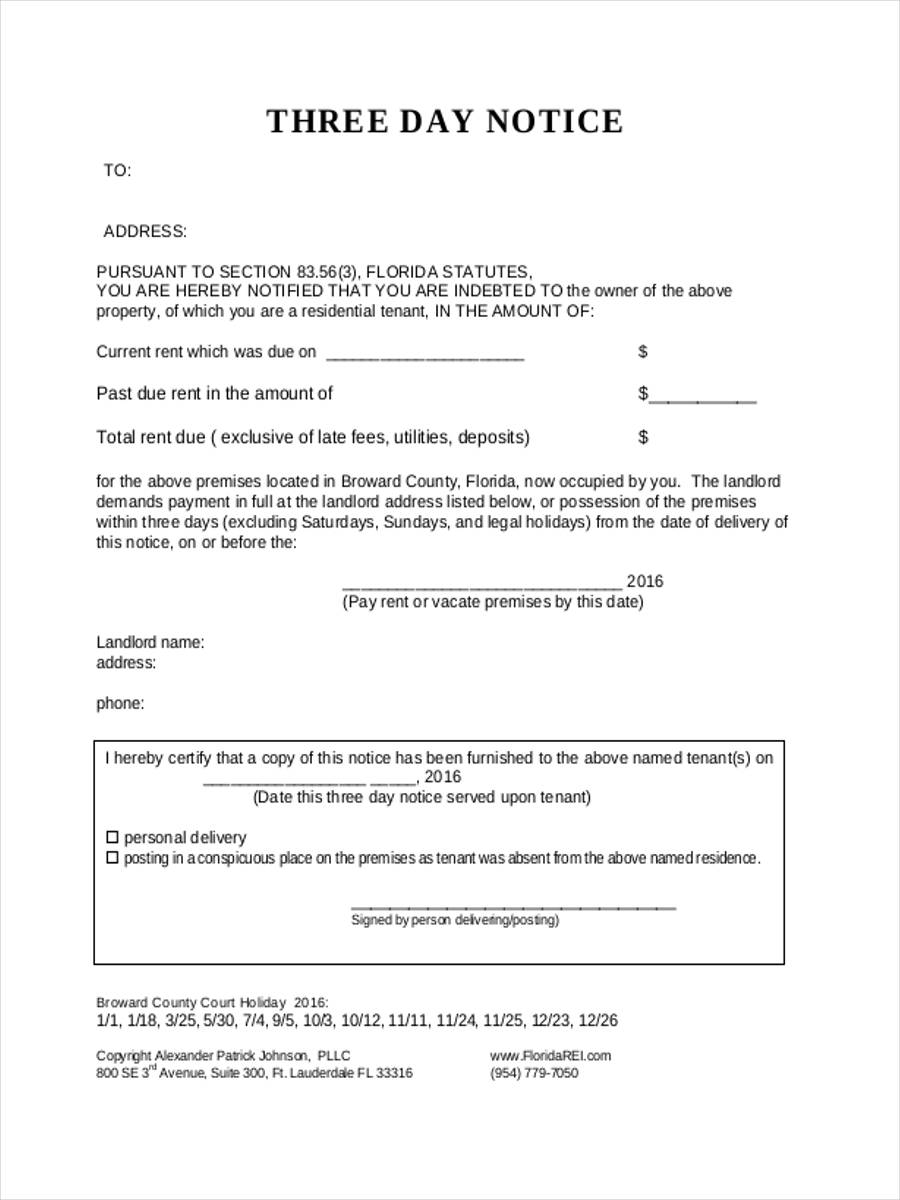As a responsible landlord, it is important to ensure that your tenant abides by the terms of the lease agreement. Unfortunately, there are instances when a tenant may fail to pay rent or violate other conditions of the lease. In such situations, it is necessary to take legal action to protect your rights as a landlord. One such legal action is to serve the tenant with a three-day notice.
What is a Three-Day Notice?
A three-day notice is a document that a landlord serves to their tenant when they want them to remedy a particular violation within a limited time frame or vacate the rental property. It is a final demand that stipulates that the tenant must cure the violation, move out, or face eviction. A three-day notice must be served to the tenant in-person, via mail, or posted in a conspicuous place on the rental property.
 When Should a Landlord Serve a Three-Day Notice?
When Should a Landlord Serve a Three-Day Notice?
A landlord should serve a three-day notice when a tenant violates one or more conditions of the lease agreement. Common reasons for serving a three-day notice include:
- Failure to pay rent
- Violating pet rules
- Hosting unauthorized guests
- Creating excessive noise that disturbs other tenants
- Damaging rental property
- Engaging in illegal activities such as drug abuse
It is important to note that a landlord cannot serve a three-day notice without a legitimate reason. Generally, a landlord must give the tenant an opportunity to remedy the violation before they can take eviction action.
How to Write a Three-Day Notice?
A three-day notice must be written correctly to ensure that it is legally binding. Here are the essential details that a three-day notice should contain:
- The name of the tenant
- The rental property’s address
- The date the notice was served
- A description of the violation
- The deadline for remedying the violation
- A statement indicating that the tenant must move out if they fail to cure the violation
- A signature of the landlord or their agent and the date of signing
Landlords can either draft a three-day notice using a template or hire a lawyer to draft one on their behalf.
What Happens If Tenant Ignores a Three-Day Notice?
If a tenant fails to remedy the violation or move out within the three-day period, the landlord can start the eviction process. In most states, the landlord must file a complaint with the court, and the tenant is served with a copy of the complaint and a summons. The tenant then has a certain number of days to respond, after which the case goes to court.
If the court rules in favor of the landlord, the tenant is issued with an eviction order, and the landlord can proceed to have them forcibly removed from the rental property.
Conclusion
Serving a three-day notice is an essential step for landlords who want to protect their rights and enforce their lease agreements. However, landlords must adhere to legal procedures when serving the notice to avoid violating the tenant’s rights. If you are a landlord, it is advisable to contact a lawyer experienced in tenant law for legal guidance on the eviction process.